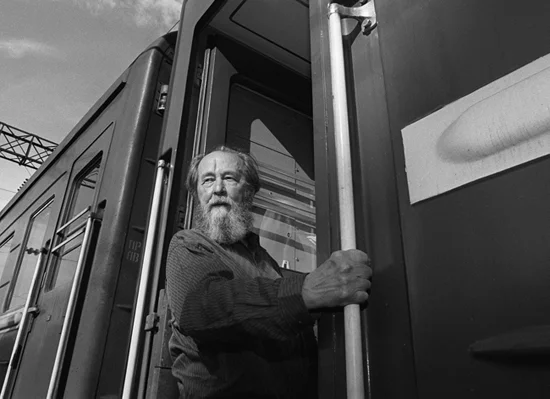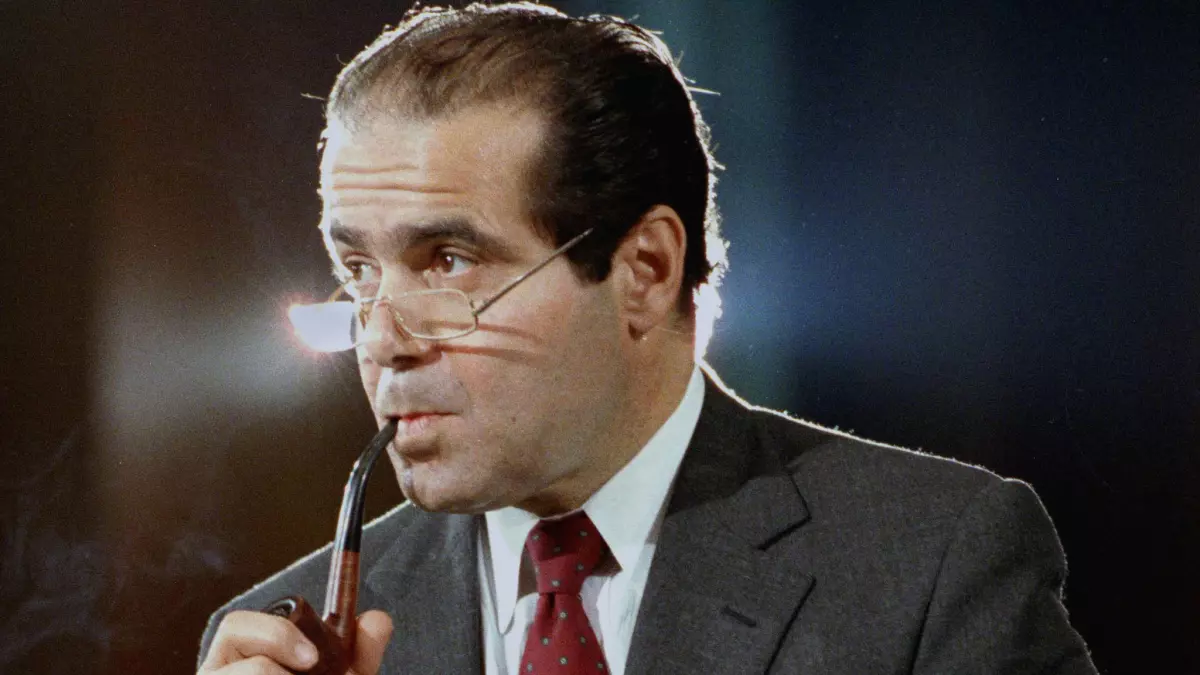
Can Cass Sunstein Save Liberalism?
Sunstein wants to make the case for liberalism, rightly understood, to save it from those who fail to appreciate its preciousness, its fragility, and its finer points.
Frank Meyer published In Defense of Freedom in 1962 and earned his rightful, if belatedly recognized, place as the father of American conservative political philosophy. He argued that two seemingly divergent strands of conservatism were not divergent at all, at least not in the American tradition. Traditionalism’s emphasis on virtue was not antagonistic to the libertarian ideal of individual liberty, but complementary to it – as long as the two existed in productive tension. This “fusionist” philosophy, which defends the American way of life, and is dedicated to ordered liberty, was attacked from both sides. The American Left was slouching towards collectivism, with the federal government socializing large swaths of American life. The Right had to counter that tendency with the language of individual liberty, even as its traditionalist elements worried that individual liberty would devolve into licentiousness and corrode the social order.
Meyer’s argument was as essential as it is (still) misunderstood: Liberty and order must remain in enduring tension to honor our fundamental commitment to respecting human dignity. Whether one or the other will prevail in any given collision is a matter of active contestation; the important thing is that both arguments remain live, understood, and central to debates over how Americans govern themselves.
Decades later, law professor and prolific scholar Cass Sunstein has published On Liberalism, using Meyer’s book title as a subtitle. Sunstein, like Meyer, is a defender of the free society, and he has taken on the noble project of defining what he defends and explaining, in the process, why it is better than the alternatives. His goal is “to offer a kind of portrait of liberalism now – of its big tent and its edges, of what it stands for, of what it stands against.” He first identifies who it stands against: Hitler, Stalin, and, in our own day, Putin. Illiberal elements penetrate the right and left, at home and abroad. Some bright lines exclude various philosophies from the liberal camp: “If you do not believe in freedom of thought and freedom of speech, you are not a liberal. If you do not believe in freedom of religion, you are not a liberal.”
These freedoms, alongside other broad values such as the rule of law and “experiments in living,” Sunstein’s term for broad cultural pluralism, are besieged on all sides. We are in a post-liberal moment. Sunstein wants to make the case for liberalism, rightly understood, to save it from those who fail to appreciate its preciousness, its fragility, and its finer points.
That is a worthwhile effort. More Westerners should take stock of the miracle we enjoy daily: unprecedented health, wealth, security, freedom, and an overall quality of life. We owe much of these achievements to liberalism. But Sunstein’s exploration of liberalism is not going to save it from the barbarians at the gate, for two main reasons.
One, it misidentifies the preeminent post-liberal threat in the West and thus fails to tailor its arguments to those who need to hear them most. (The most prominent anti-liberal threat speaks an entirely different language, literally and figuratively, and has no interest in Sunstein’s arguments from and for liberalism.)
Two, On Liberalism falls short of providing a framework that would allow potential defenders of the West to navigate the difficult questions of governance; in other words, to give them the tools they need to feel confident in liberalism’s continued viability as a political philosophy. That’s what Meyer did in his superior defense of freedom. And while Meyer emphasized pre-liberal and non-political commitments like family and faith as necessary complements to political freedom, Sunstein’s focus on experiments in living leaves little room for normative judgments beyond a politics of freedom. He isn’t opposed to religion or familial obligations, to be sure, but he does overlook the role traditional sources of order play in making liberal politics durable.
Much of the book is dedicated to advancing a view of left-liberalism that right-liberals castigate as illiberal. Sunstein’s pantheon of liberal heroes includes Mill and begins with an appreciation of his principle that it is right to restrain one citizen only when necessary to protect another, but it also includes Franklin Delano Roosevelt and John Rawls. FDR’s Second Bill of Rights supplemented the negative liberty that liberals long prized with positive liberties, inviting government to conscript others to provide a suite of goods and services in the process. Rawls’s ideal society, which allows inequality only to the extent that it benefits the least well-off, sits uneasily with Mill and indeed leads to some distinctly anti-liberal conclusions. His emphasis on the iceberg of luck beneath an individual’s visible success may speak to Sunstein’s desires to increase opportunity for all, regardless of unchosen characteristics like where one is born, but it erodes the philosophical basis for treating all individuals as choosers – a cornerstone of liberalism and the rule of law.
Sunstein seems to be reaching out to his left to win back some left-liberals drifting towards left-illiberalism. At best, it still alienates right-wingers on the fence, who cannot abide sharing a tent with FDR and Rawls, and thereby sacrifices one corner of the big tent for another.
The bulk of the book indicates, however, that Sunstein still sees the Right as a persuadable but wayward faction. They need this book, and perhaps they will read it, find its arguments accessible, and abandon their burgeoning fascination with Patrick Deneen, Adrian Vermeule, and even Vladimir Putin. That is fine, but inadequate. The most trenchant criticisms of liberalism come from those quarters. The imminent threat to its health, however, comes from the Left.
Sunstein doesn’t address the threat to liberalism posed by some people or movements, even though his description of liberalism clearly excludes them. “No liberal believes that fines or subsidies are a sufficient approach to the problem of violent crime,” he writes. Yet the ascendant Democratic Socialists of America and their confederates are building a movement on prison abolitionism; their poster child calls violence “an artificial construct,” and urges others to see the moral equivalency between “stealing packages” and prosecuting those thefts. He was recently elected mayor of New York City. Sunstein insists that it is illiberal to believe “that people get to choose whether to steal or to assault,” meaning that those are choices equally acceptable as becoming, for instance, a district attorney. If so, the illiberals are way closer to home than Putin, and are way more influential than postliberal professors. Left-illiberals are in thrall to an alien system of moral reasoning, a fixation on anti-merit ideas about genetic luck and moral randomness, and complete ingratitude for the wonders of modern society.
Without downplaying the serious problems on the American Right, we can acknowledge the plain fact that such illiberalism is taking over the Democratic Party. We would benefit from a closer examination of what Zohran Mamdani’s brand of DSA leftism (endorsed by New York Governor Kathy Hochul and President Barack Obama, no less) offers in competition with the liberal tradition, and some explanation of why it’s in the interests of young left-liberals to reject it. Instead, readers are left asking questions about why this book is necessary: Who are we trying to persuade to abandon illiberalism and join the camp of the free? Does any of this stand a chance against an alliance of Islamists and Leftists who laugh in the face of liberal arguments about pluralism?
Even if Sunstein had answers to those questions, his analysis of liberalism fails to reach the live arguments about liberalism’s viability in a diverse and democratic republic. That is probably more the fault of left-liberalism than of Sunstein; its downfall is its inability to provide a framework for hard cases.
Liberal public life is rife with tradeoffs and limitations. One cannot be liberal without believing in free speech and religious freedom, but how do we define those terms? Mill posited that they must be limited by the harm principle, but people will define harm differently – especially in a population of diverse assumptions, tastes, and expectations. There are uses of one’s liberty that can be harmful in ways less direct and less offensive than a fist to one’s face. Traditionally, liberty of speech and worship were limited by public peace provisions. (Here we are already beginning to trade liberalism off, as we should, with civic republicanism.) That meshes nicely with a political community’s power to legislate to advance the public interest. But it still begs questions: What is the public peace? More pertinently, how ought a liberal even begin to answer that question? What is the liberal’s view of order, the common good, the public interest?
Without a shared framework for thinking through those questions, liberalism is doomed to be written off as a dead letter. A fine aspiration in a community of uniform thinkers, but in any place where pluralism actually matters as a way of allowing experiments in living, it will sow its own demise by failing to provide an arena for different-thinking people to reason together under shared premises.
A book that purports to delineate and defend liberalism must address these problems. These are the intellectual elements of the movements to unravel the liberal order, which are admittedly frequently emotive and driven by grievance more than reasoned judgment. Yet if one chooses not merely to mount an equally irrational response but to try to win back a generation slipping in its liberal commitments, one must identify the ideas that give their movement ammunition and address them.
Fusionism offers an answer that defends freedom from its critics, left and right. It recognizes that disorder renders liberalism a promise not worth the parchment it’s written on. With this country’s Founders, fusionism emphasizes the need for virtue-inculcating institutions that form citizens capable of wielding freedom responsibly. It elevates a particular view of morality, that of the inherent dignity of every individual – presciently fending off the view that human beings are disposable, interchangeable avatars for abstractions. It gives Americans a framework to argue about where rights end, and state power begins: If exercising a right induces disorder of the kind that corrodes public safety, freedom, or morality, it breaches the peace. We are unaccustomed to thinking along those lines, despite Meyer’s best efforts, because liberalism has become so culturally dominant that it has elbowed out its order-and-virtue counterpoise. Perhaps it burned too hot and now risks flaming out.
To the extent that influencers and opportunistic politicians fan left-illiberalism, ideas like fusionism will be of limited use. But clearly popular leftist sentiment trickles down from the academy and other, more considered, corners. (Transgenderism, decolonialism, and critical race theory bursting into the mainstream are good examples.)
Anyone who wants to save liberalism in the West should pinpoint a few points where left-illiberals have taken wrong turns. They have embraced Rawlsianism to an extreme degree, even to the point of refusing to hold criminals accountable for the most obvious threats to social peace, preferring to blame society for “failing” thieves and assaulters. They see merit as a construct of the powerful, by the powerful, for the powerful, a fraud perpetrated against the subaltern masses to justify cronyism and inequality. They see history as one subjugation after another, worthy of being undone. They see individuals as symbols of those historic forces – for better or, usually, for worse. An orderly unraveling of history, needless to say, is not on the agenda.
Liberals need to repudiate all of these. Rawls is not a get-out-of-jail-free card. Menaces to society must be incapacitated, regardless of whether they are blameworthy in some cosmic sense. Traditional notions of merit are worth upholding, if only because they alone push people to build, strive, and serve others. The slightest bit of historical perspective would reveal that we are remarkably blessed to live in a liberal republic, and anyone who thinks undoing the liberal miracle will make achieving “social justice” easier is an ingrate. And certainly liberalism cannot abide treating individuals as dispensable victims of a revolution, even if they are a CEO or a conservative personality.
A political movement grounded in those principles would amount to a form of liberalism no longer left-of-center in character. It looks a great deal like fusionism, in fact. That’s no coincidence. It’s what you get when you defend freedom against all its detractors.
Tal Fortgang is a Legal Policy Fellow and Advisor to the President at the Manhattan Institute.
Politics
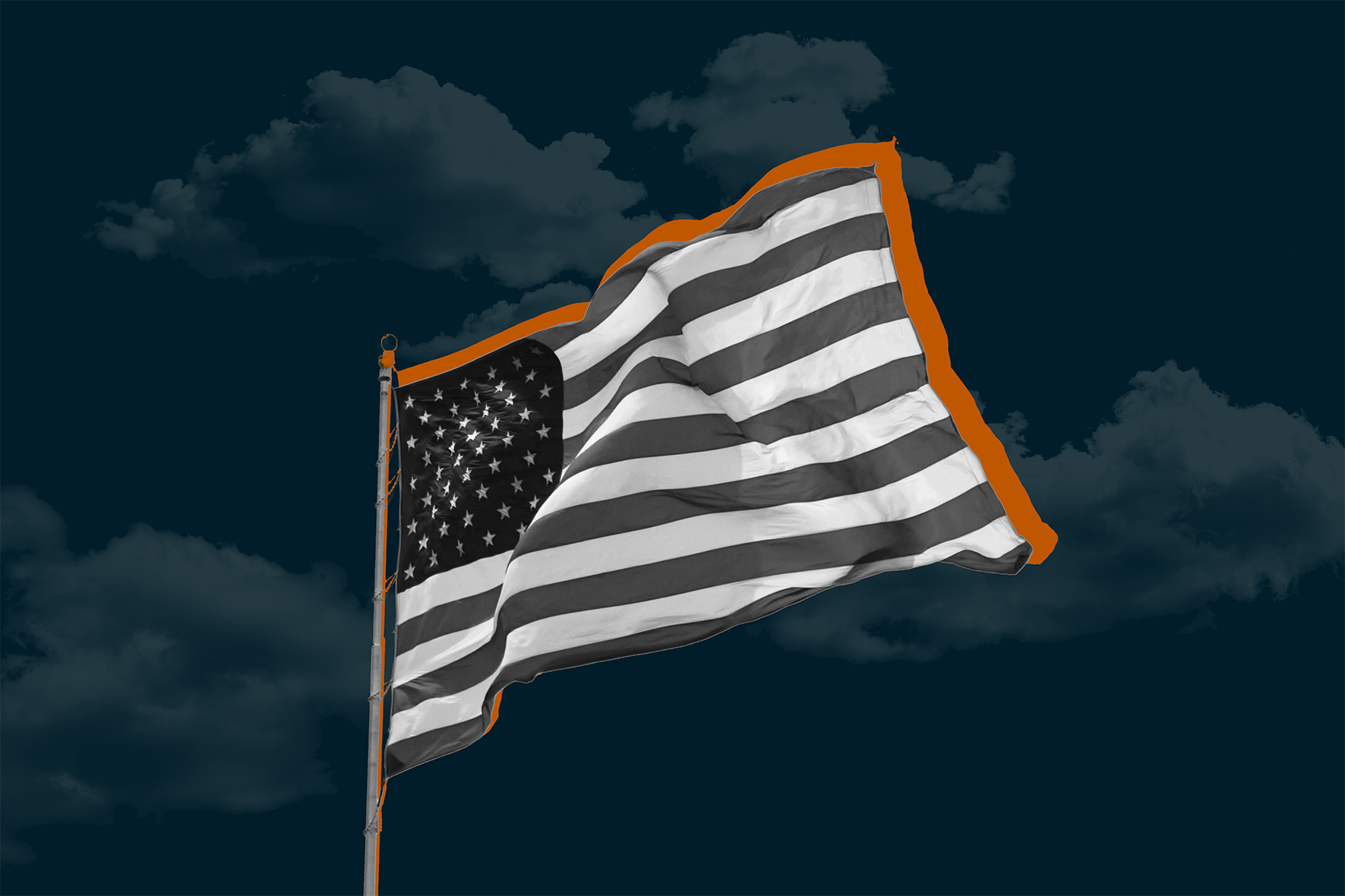
National Civitas Institute Poll: Americans are Anxious and Frustrated, Creating a Challenging Environment for Leaders
The poll reveals a deeply pessimistic American electorate, with a majority convinced the nation is on the wrong track.
.webp)
Liberal Democracy Reexamined: Leo Strauss on Alexis de Tocqueville
This article explores Leo Strauss’s thoughts on Alexis de Tocqueville in his 1954 “Natural Right” course transcript.
%20(1).avif)
Long Distance Migration as a Two-Step Sorting Process: The Resettlement of Californians in Texas
Here we press the question of whether the well-documented stream of migrants relocating from California to Texas has been sufficient to alter the political complexion of the destination state.
%20(3).avif)
Who's That Knocking? A Study of the Strategic Choices Facing Large-Scale Grassroots Canvassing Efforts
Although there is a consensus that personalized forms of campaign outreach are more likely to be effective at either mobilizing or even persuading voters, there remains uncertainty about how campaigns should implement get-out-the-vote (GOTV) programs, especially at a truly expansive scale.

There's a Perception Gap With the U.S. Economy
As we approach another election cycle, it’s worth asking: what’s real, what’s political theater, and what does it all mean if Democrats regain control of the House?

International Law Is Holding Democracies Back
The United States should use this moment to argue for a different approach to the rules of war.
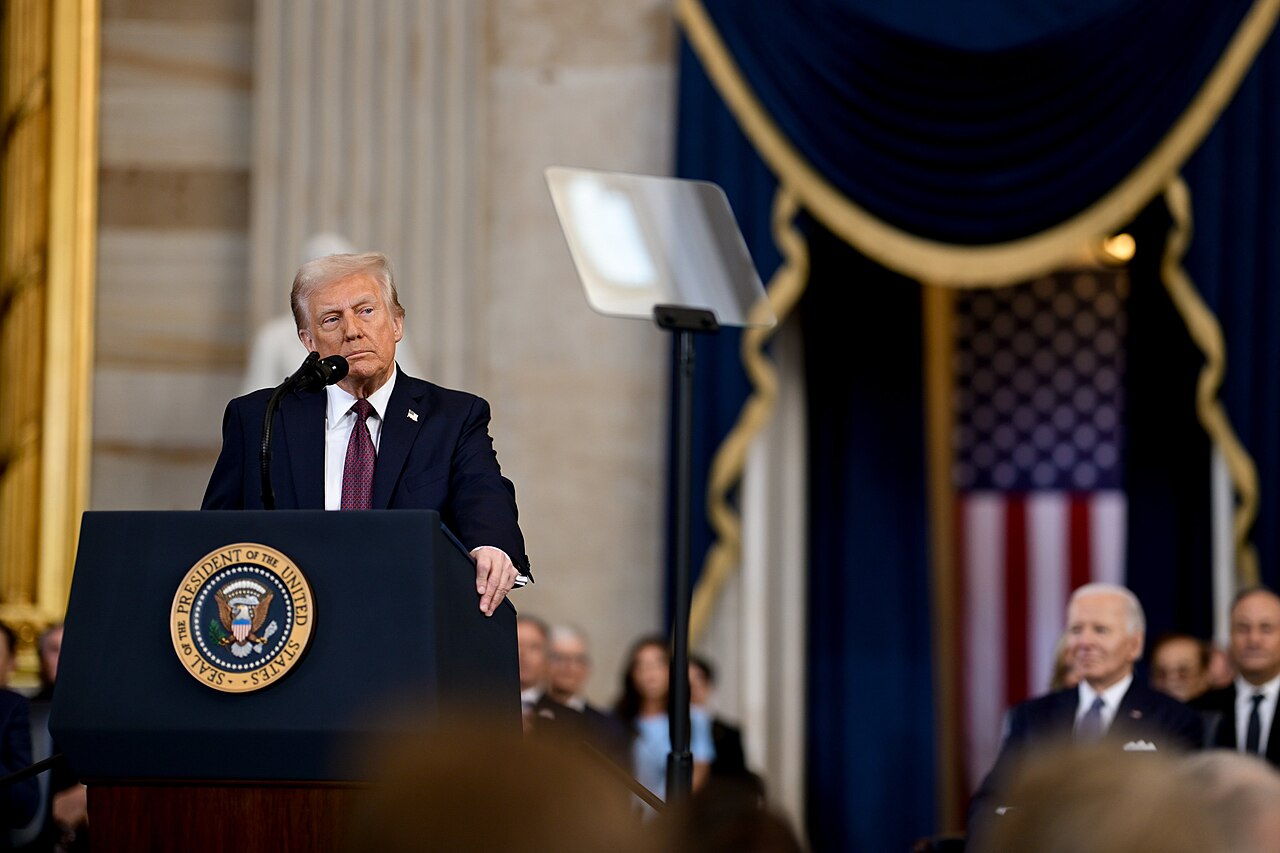
Trump purged America’s Leftist toxins. Now hubris will be his downfall
From ending DEI madness and net zero to securing the border, he’ll leave the US stronger. But his excesses are inciting a Left-wing backlash
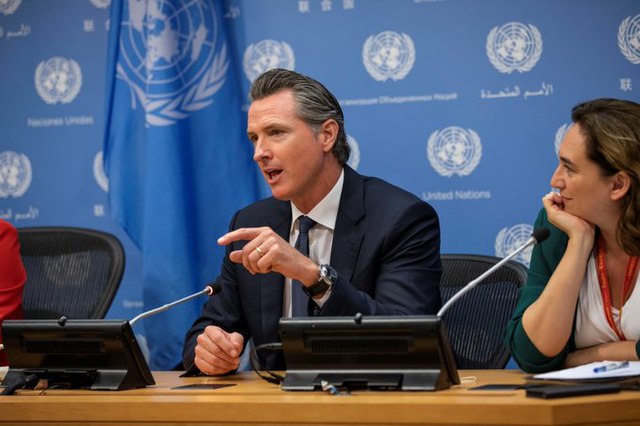
California’s wealth tax tests the limits of progressive politics
Until the country finds a way to convince the average American that extreme wealth does not come at their expense, both the oligarchs and the heavily Democratic professional classes risk experiencing serious tax raids unseen for decades.
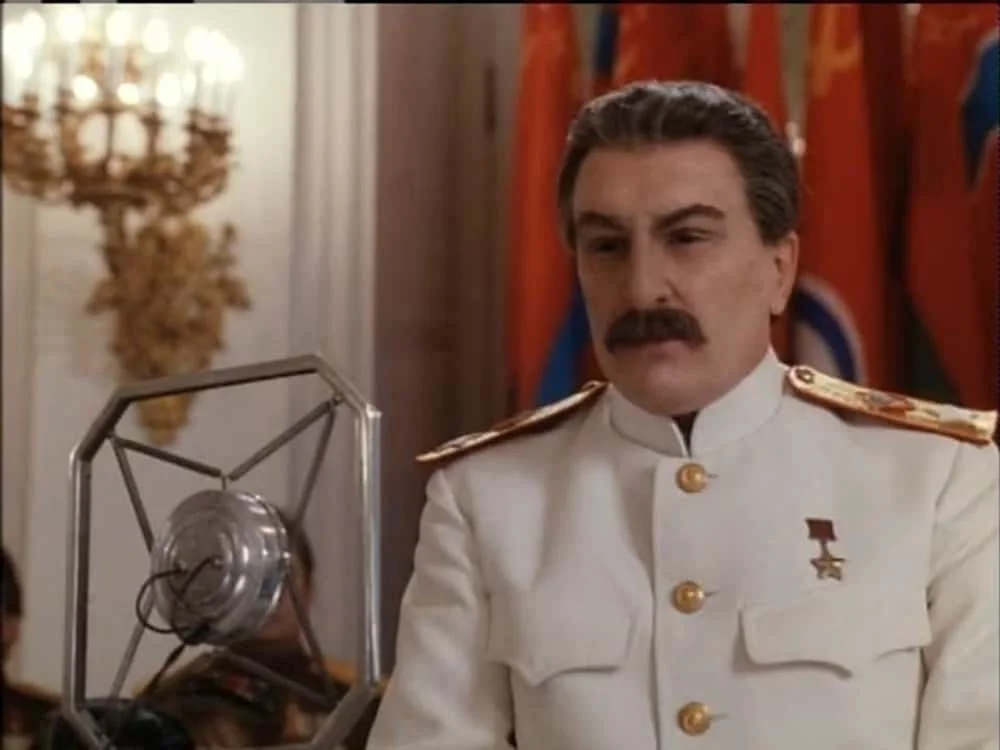
When Duvall Played Stalin
It’s strange to compliment an actor for impersonating a tyrant, but it is an act of courage.

When Vanity Leads to Impropriety
A president should simply not be allowed to name anything after himself without checks from Congress or an independent commission.








